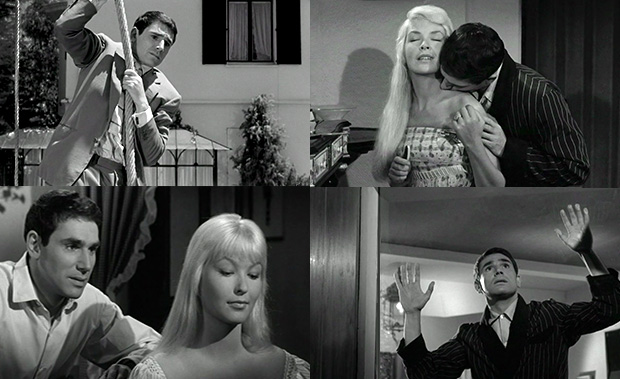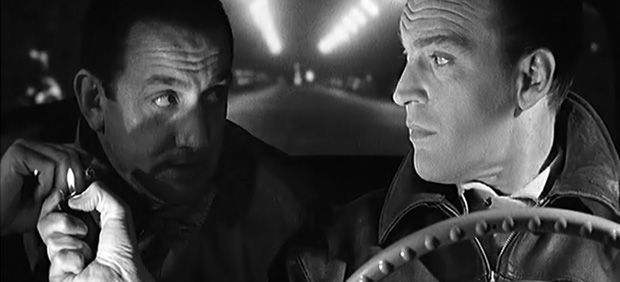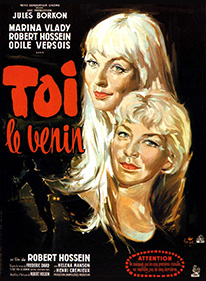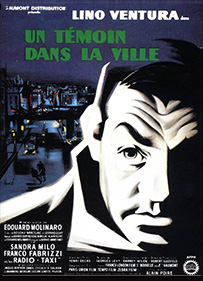THE FRENCH HAD A NAME FOR IT
FRENCH FILM NOIR 1946-64
FRI—MON, NOV 14—17, 2014 ▪ ROXIE THEATER
Presented by Mid-Century Productions and I Wake Up Dreaming
FRIDAY, NOV 14
(1949) 6:00, 10:15
(1960) 8:00
SATURDAY MATINEE, NOV 15
(1947) 1:30
UNE MANCHE ET LA BELLE
A KISS FOR A KILLER
(1957) 3:30
SATURDAY NIGHT, NOV 15
TOI LE VENIN
BLONDE IN A WHITE CAR
(1958) 6:15, 9:45
UN TEMOIN DANS LA VILLE
WITNESS IN THE CITY
(1959) 8:00
SUNDAY MATINEE, NOV 16
(1948) 1:30
EN CAS DE MALHEUR
LOVE IS MY PROFESSION
(1958) 3:15
SUNDAY NIGHT, NOV 16
(1963) 5:30, 9:30
VOICI LE TEMPS DES ASSASSINS
DEADLIER THAN THE MALE
(1956) 7:30
MONDAY, NOV 17
LA P... RESPECTUEUSE
THE RESPECTFUL PROSTITUTE
(1952) 6:00, 9:45
J'IRAI CRACHER SUR VOS TOMBES
I SPIT ON YOUR GRAVES
(1959) 7:45
*Note that all films will be shown with English subtitles.
SATURDAY EVENING, NOVEMBER 15, 2014
TOI LE VENIN / BLONDE IN A WHITE CAR 6:15, 9:45

Suavely deadpan Robert Hossein quickly became a force on both sides of the camera with his breakthrough film THE WICKED GO TO HELL (1955), which also introduced him to France's blondest minx, Marina Vlady (whom he would soon marry). Hossein's key collaborator in his noir phase (1955-64), however, was novelist Fredric Dard, considered by some to be France's answer to Raymond Chandler. TOI LE VENIN, from Dard's novel of the same name, is a nasty little ménage a trois in which two sisters (Vlady and her real-life sister Odile Versios) lead Hossein down a primrose path littered with thorns. Featuring subtle, evocative photography from Robert Juillard (GERMANY YEAR ZERO) and a cool, jazzy score from Hossein's father André. Dir. Robert Hossein (1958, 92 min.)
UN TÉMOIN DANS LA VILLE / WITNESS IN THE CITY 8:00

France's greatest character lead in the 1960s and 70s, Lino Ventura, has his breakout role here, as a revenge murderer who finds that his "perfect crime" was witnessed by a cab driver and must try to eliminate him. As events unfold, Ventura finds that he is as much hunted as hunter. Stunning night photography from Henri Decaë (BOB LE FLAMBEUR, ELEVATOR TO THE GALLOWS), and an evocative score featuring jazz greats Kenny Clarke and Kenny Dorham. Dir. Eduard Molinaro (1959, 86 min.)













